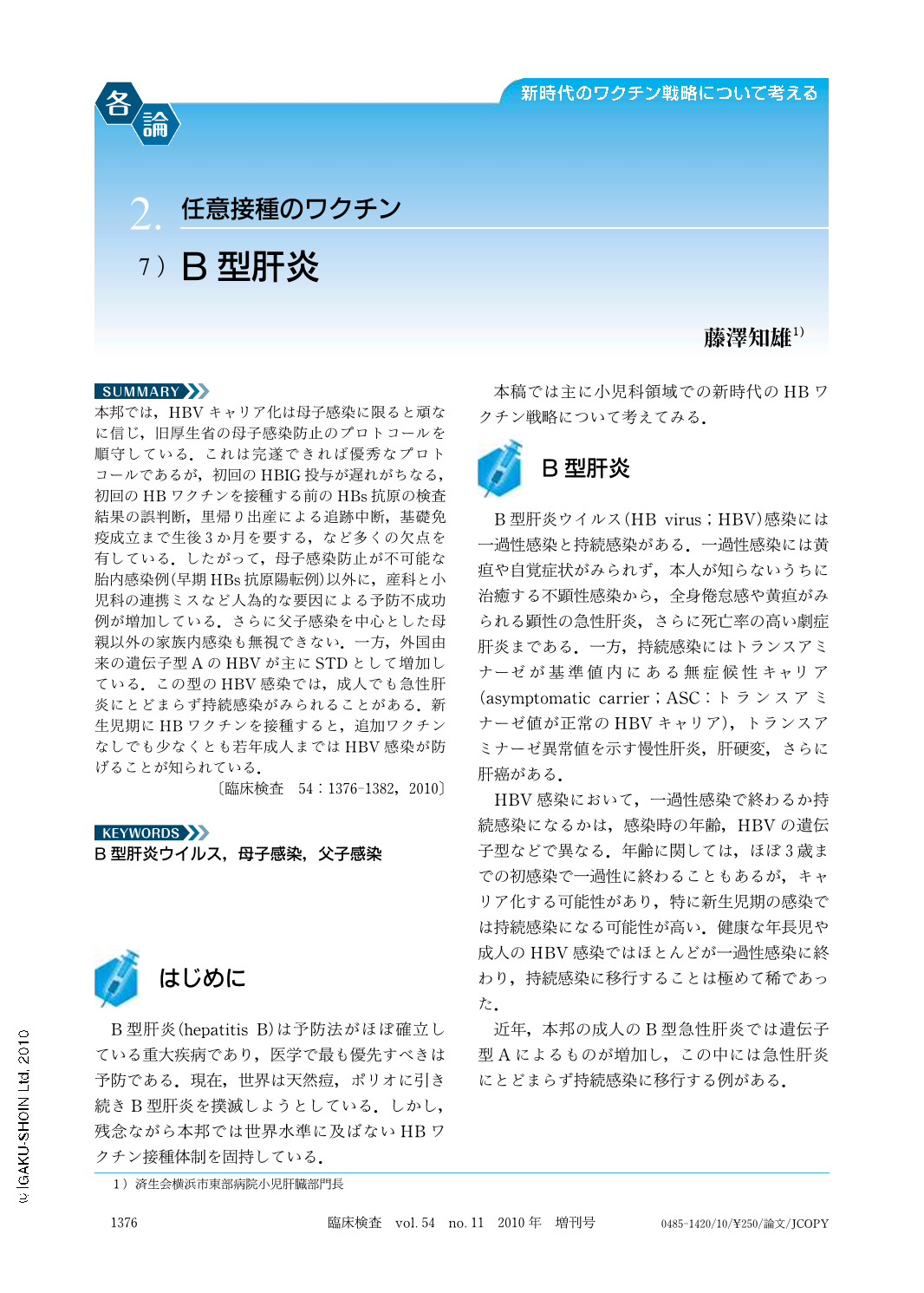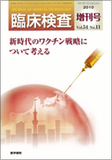Japanese
English
- 有料閲覧
- Abstract 文献概要
- 1ページ目 Look Inside
- 参考文献 Reference
本邦では,HBVキャリア化は母子感染に限ると頑なに信じ,旧厚生省の母子感染防止のプロトコールを順守している.これは完遂できれば優秀なプロトコールであるが,初回のHBIG投与が遅れがちなる,初回のHBワクチンを接種する前のHBs抗原の検査結果の誤判断,里帰り出産による追跡中断,基礎免疫成立まで生後3か月を要する,など多くの欠点を有している.したがって,母子感染防止が不可能な胎内感染例(早期HBs抗原陽転例)以外に,産科と小児科の連携ミスなど人為的な要因による予防不成功例が増加している.さらに父子感染を中心とした母親以外の家族内感染も無視できない.一方,外国由来の遺伝子型AのHBVが主にSTDとして増加している.この型のHBV感染では,成人でも急性肝炎にとどまらず持続感染がみられることがある.新生児期にHBワクチンを接種すると,追加ワクチンなしでも少なくとも若年成人まではHBV感染が防げることが知られている.
The prevention protocol on mother-to-infant HBV transmission proposed by the Ministry of Health and Welfare is excellent if the schedule is accomplished. However, in comparison to international methods, the schedule is relatively complex and it needs at least 3 months to obtain basic immunity against HBV. The universal HB vaccination inoculating all newborn infants followed by another inoculation at the age of 1 month, and another between 6~12 months, has been adopted in almost all countries in the world except a few countries including Japan. The risk of HBV infection by horizontal HBV transmission still remains in Japan. Now, we need to consider adopting the HB universal vaccination.

Copyright © 2010, Igaku-Shoin Ltd. All rights reserved.


